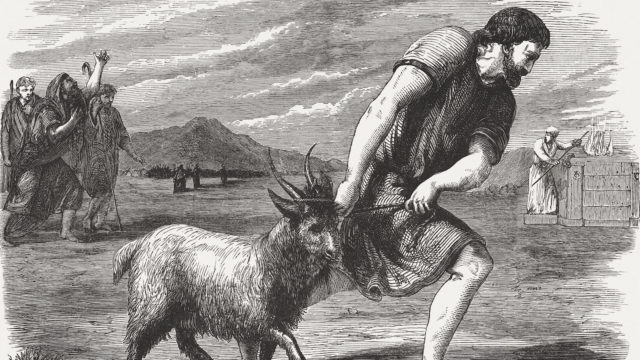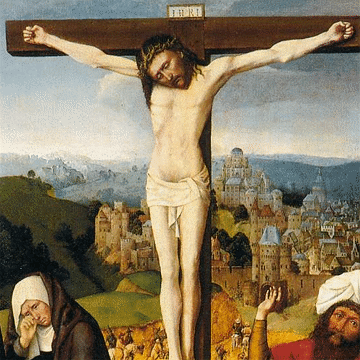One notable thing about the Bible, from the Old Testament, is that sins are transferrable. Just as debt is transferrable in an economy. So the Bible establishes a…Sin Economy.
“…in the death of Christ the “guilt” of sin is transferred to Christ from believers. Though we are all “guilty” as sinners before God; we can rest and trust that Christ took upon himself the guilt of those who trust in him.” – source
In the Old Testament, Abraham is to sacrifice his son Isaac, but then God opens the first Sin Bank, and accepts a goat in his stead. Exodus and Leviticus are practically financial tables listing the sin value of goats, sheep, and pigeons. Then there’s the annual scapegoat, in which the sins of the tribe are transferred to the goat, which God accepts as payment; the goat “redeems” them, or their sins, or something; the goat is an abstract, transferrable currency.
With the advent of goats as redeemable currency, sin/debt is transferrable. The sin economy expands like crazy, as animals redeem human sin debts. You can have way more sin when you don’t have to pay for your own. Sure, there is some cost to keeping/herding goats, but it’s mostly “externalities” – it’s goats and Nature bearing those costs, more than humans. Humans mostly service the institution.
Goats, sheep, and turtledoves are Old testament commodity money, but the New Testament creates fiat currency in Jesus. The Bank of Jesus relies entirely on faith, and the sin economy expands yet again.






